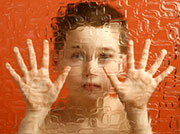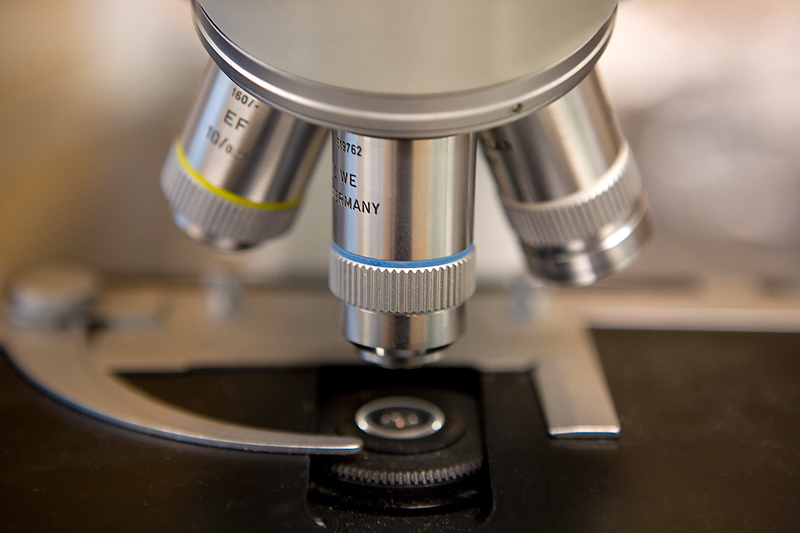
MONDAY, Jan. 26, 2015 (HealthDay News) — Siblings who share a diagnosis of autism often don’t share the same autism-linked genes, according to a new study.
Researchers previously have identified more than 100 genetic mutations that can make a person more susceptible to an autism spectrum disorder, said senior author Dr. Stephen Scherer, director of the Center for Applied Genomics at the Hospital for Sick Children in Toronto.
But this study revealed that genes linked to autism can vary among family members who would be expected to be genetically similar.
“We found when we could identify the genes involved in autism, for two-thirds of those families, the children carry different genetic changes,” Scherer said. “In one-third, the children had the same genetic change and it was inherited from one of the parents.”
The study was published online Jan. 26 in Nature Medicine.
Autism is a developmental disorder in which children have trouble communicating with others and exhibit repetitive or obsessive behaviors. About one in 68 children in the United States has been diagnosed with autism spectrum disorder, according to the U.S. Centers for Disease Control and Prevention.
The study’s findings could pave the way toward more accurate diagnosis and earlier treatment for children with a genetic predisposition toward autism, Scherer said.
Previously, if a family had a child with autism, doctors would focus only on the gene related to that child’s autism in order to predict whether another sibling also could be at risk, he said.
“We’re saying that’s the wrong thing to do,” Scherer said. “You need to sequence the whole genome, because more likely than not, it’s going to be something different.” Through such a comprehensive scan, doctors can get children with autism very early treatment, which has been shown to improve their development.
This research relies on “whole-genome sequencing,” a more technologically advanced form of testing that doubles the amount of genetic information produced by each scan, Scherer said. The cost of such testing has gone down in recent years as the technology has improved, he added.
Scherer’s team sequenced the genetics of 85 four-member families in which both children had been affected by autism.
Because autism often runs in families, experts had assumed that siblings with the disorder inherited the same autism-predisposing genes from their parents, he said.
Instead, the researchers found that 69 percent of siblings had little to no overlap in the gene variations known to contribute to autism. Sibling pairs shared the same autism-associated gene changes just 31 percent of the time.
Lisa Croen, director of the Autism Research Program at Kaiser Permanente Northern California, said she wasn’t too surprised by this finding.
“Based on the past research, I would have expected this, because there are so many genes associated with autism but most of these genes are not directly associated with autism,” Croen said. “You look across studies and there’s not a lot of consistency which genes are related to autism.”
Genes linked to specific psychological and nervous system conditions often are also associated with autism, Croen and Scherer said.
For example, in this study, researchers discovered a girl with autism who had a gene related primarily to epilepsy, but also to autism, Scherer said. Her brother had a gene related to Angelman’s syndrome, a developmental and neurological disorder that might be linked to autism.
Known autism-risk genes showed up in 42 percent of the families participating in the study.
“This may help explain why autism came about in their child or provide insight into related medical conditions,” Scherer said, noting that in a 2013 pilot genome sequencing study, his team identified autism-linked genes in more than half of 32 participating families. That study provided several families with medically important information.
Scherer is leading an effort by Autism Speaks, an autism research and advocacy group, to make the genomes of 10,000 families affected by autism publicly available.
The genetic data, stored in an open-source database, will hopefully allow researchers more insight into the many subtypes of autism and lead to treatments that focus on the individual, he said.
Kaiser Permanente also is undertaking similar research, Croen said, gathering medical data and genetic specimens from 5,000 people with an autism spectrum disorder and their parents.
“We need large populations of families with affected and unaffected individuals, to look within those families and across families to see what associates with autism and what doesn’t,” she said.
More information
For more information on autism spectrum disorder, visit the U.S. National Institute of Mental Health.
Copyright © 2026 HealthDay. All rights reserved.

